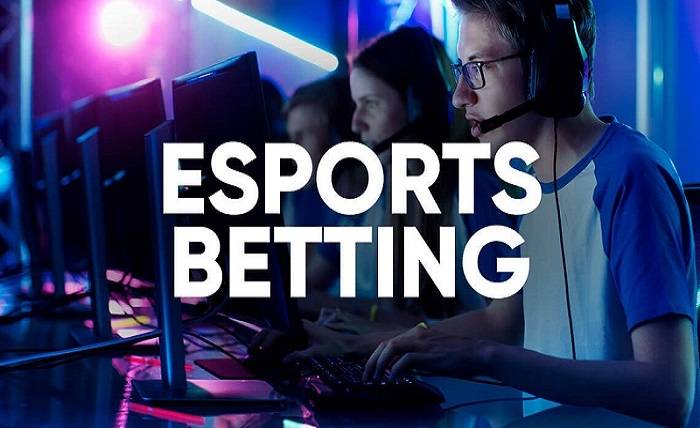A relatively new kind of recreation that millions of people love is esports betting. The term “esports” refers to competitive gaming. It resembles traditional sports in many ways, with fans supporting teams, watching games, and placing call of duty bets.
Due to the live streaming of esports and the millions of spectators who tune in to watch competitions at any given moment, the sector has recently grown to be worth $1 billion. Esports are divided into two primary categories: simulations of traditional sports (the NBA, MLS, and FIFA, for example, all have esports teams), and traditional esports games like League of Legends, DOTA 2, and CS: GO. Anyone with an internet connection may now watch players thanks to streaming services like Twitch and YouTube. Successful players can earn substantial pay, much like in conventional sports. Teams and players compete in some of the major esports tournaments for millions of dollars in cash prizes.
How Do Esports Bets Operate?
Even though you can wager before an esports event, live betting has gained enormous popularity. The three most popular esports betting categories are:
- Fixed-odds, real-money wagering through an online bookmaker
- Social wagering conducted privately between persons
- Loot boxes and clothing gambling, both of which frequently occur in-game
Some esports wagers are tied to a certain game, such as CSGO, League of Legends, or DOTA2. For instance, a bet might be made on who will score the “first kill” in a specific match. Additional wagers can be made on:
- Result of the contest
- Who wins the competition?
- The final result
- Betting on odd or even numbers of games won, opponents killed, or rounds played is known as an odd/even wager.
- Additionally, you can wager on whether an esports team will score more or less than a predetermined number using Over/Under bets.
Risks of Esports Betting
It is crucial to comprehend the possible risks, especially for younger people, because esports are becoming increasingly popular, and esports betting is easily available.
- One worry is that parents of gamers or young people might not be aware that esports betting and loot box purchases can be considered gambling because esports betting may not resemble traditional gambling.
- Since esports betting and other in-game gambling techniques are not regulated, people under the age of eighteen, or in some jurisdictions, under the age of twenty-one, can readily gamble, frequently using their parents’ credit cards, even if traditional gambling is prohibited for minors.
- By making betting look like a customary practice in gaming, social media also has a significant impact on enticing young gamers to place bets. Esports betting services promote themselves through relatable and humorous social media postings, including employing memes to appeal to younger users. Advertising like this differs from those directed at an older audience that wagers on traditional sports.
- Lack of understanding of the nuances of the sport might be another issue when betting on esports. A deep personal understanding of the game is required to fully comprehend some games, such as DOTA2 or League of Legends, which are highly complicated. Contrast this with traditional sports, like soccer, where fans typically have access to and comprehension of the rules of the game.
- Match rigging and the lack of effective anti-fraud and cheating procedures are further issues with esports betting.
- Finally, there are worries that some young people may develop a significant issue or perhaps an addiction as more young people participate in esports betting or gambling within video games. These could have a negative effect on their physical health, cause anxiety or depression, lead to missed chances for employment or school, cause problems in their friendships or family relationships, and more.
Complex Outrights Explained
These are the more straightforward outright wagers that are available at the majority of betting websites. Outrights do, however, include more than just choosing a stage’s victor. Since an outright wager generally consists of one market with a single outright outcome, this category includes a wide variety of esports wagers. Some of the more challenging outright bets include the following:
- Score
Depending on the form of the esports game you are playing, this kind of wager can change. However, placing a wager on the score effectively permits you to do so. The precise result. This could be expressed as a score, such as 2-3, 4-1, etc. Basically, you can pick out any actual score for your esports wager here that you believe will occur. It will be challenging to predict the exact score in advance. Due to the fact that you have a little more information at your disposal, this is one of the bet types that is frequently employed in live betting.
- Performance of Players
Directly betting on a player who is participating in the game is one of the trickier esports betting strategies. The precise measurements will change based on the kind of game. For instance, you may wager on kills from a certain player or objective time in a shooter. This kind of wager is now far more difficult. To place one of these wagers, you must have faith in a specific player’s ability to perform. Since it is a variable that is challenging to predict, these wagers frequently have excellent odds.
- MVP/TOP PLAYER
A less complicated type of wager on player performance is the Top Player or MPV wager. In games that support this, the official top player for a match must be called.
- Specific Metrics or Prop Bets
Although difficult to name, these bets are simple enough to describe. Binary events that can happen or will not happen in some games are not always guaranteed. This might be anything, such as a map that is running late. They frequently apply only to the game you are looking at, though. Because it is a proposition, they are known as “Prop bets.” In this kind of esports wager, you are making the assumption that something will happen whether you bet on it or not. The probability will obviously change based on how likely an event is.








